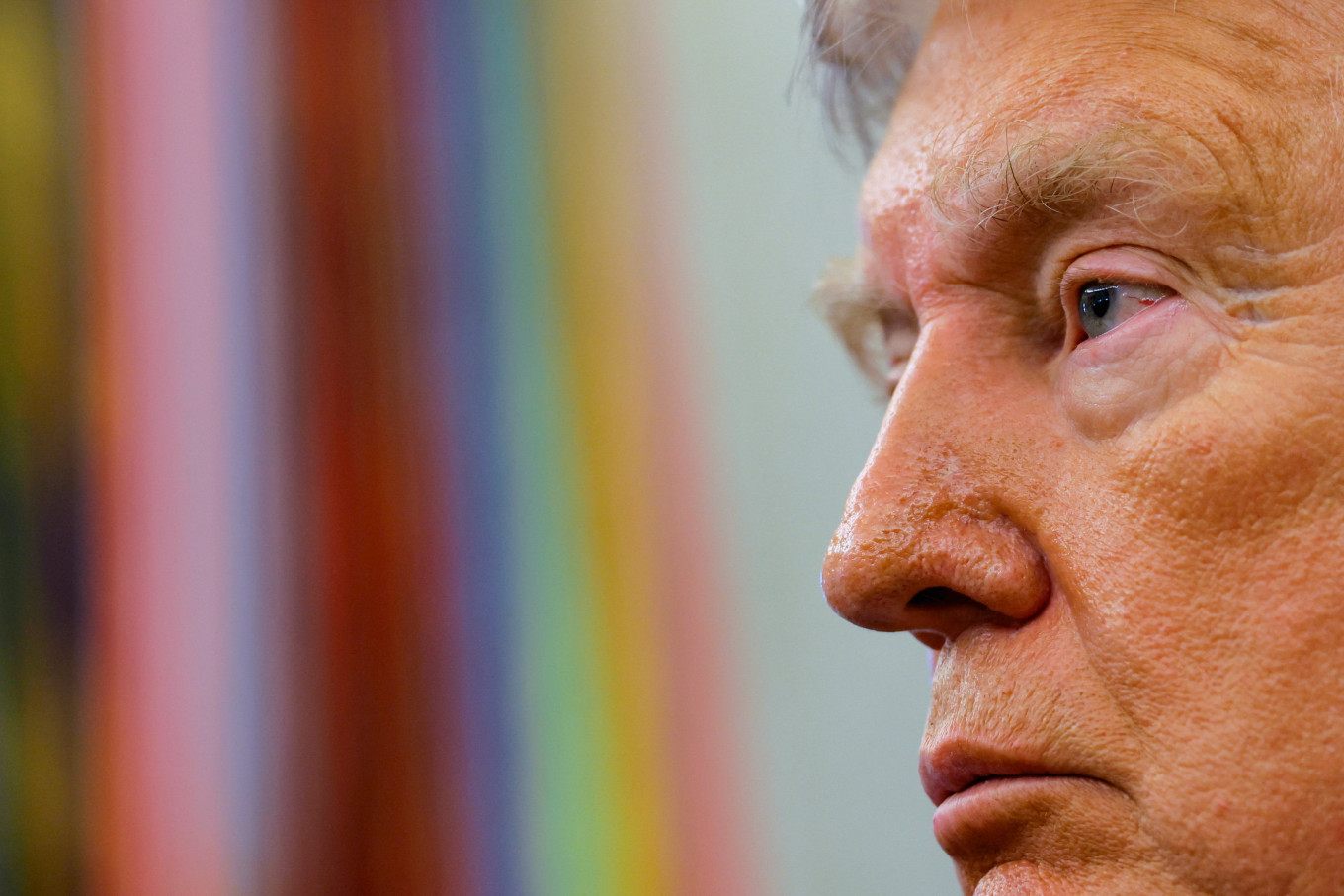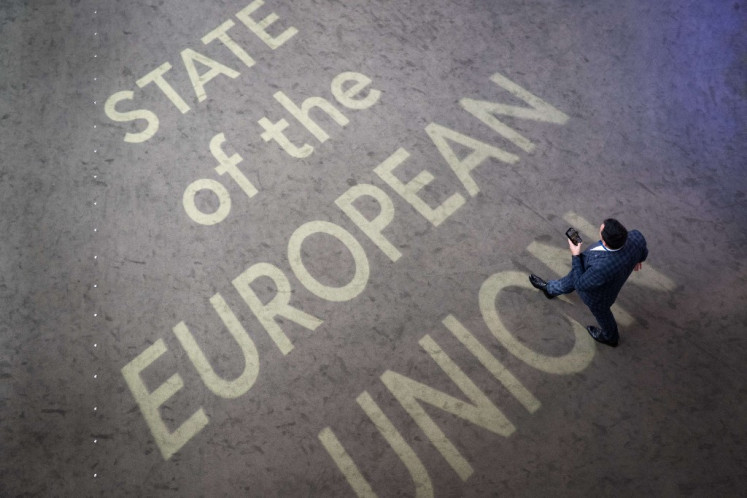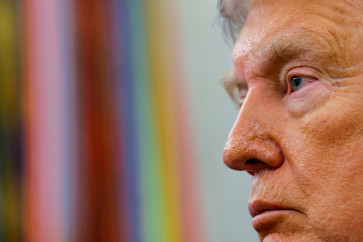Popular Reads
Top Results
Can't find what you're looking for?
View all search resultsPopular Reads
Top Results
Can't find what you're looking for?
View all search resultsLawless state capitalism is no answer to China's rise
Invoking national security and the competition with China, Donald Trump’s administration is pursuing increasingly anti-capitalist and legally dubious interventions into private industry, with potentially high costs for US dynamism.
Change text size
Gift Premium Articles
to Anyone
I
t is tempting to frame the Sino-United States economic rivalry as a clash between engineering doers and lawyerly naysayers, as the Chinese-Canadian analyst Dan Wang does in his new book Breakneck: China’s Quest to Engineer the Future. But this is a false dichotomy, because law is a crucial feature of US capitalism.
We have heard the lawyers-versus-engineers argument before. Forty years ago, Japan’s economic rise induced similar anxieties, most famously articulated in the US sociologist Ezra Vogel’s book Japan as Number One: Lessons for America. Commentators fretted that the US was mired in lawsuits while Japan’s best minds were solving problems and driving their country’s meteoric growth. Yet over the ensuing decades, the US, with its mammoth legal industry, outperformed Japan by a wide margin.
Today’s panic about an Asian economic challenger is equally unwarranted and counterproductive. Invoking national security and the competition with China, Donald Trump’s administration is pursuing increasingly anti-capitalist and legally dubious interventions into private industry, with potentially high costs for US dynamism.
Consider the whirlwind of deals struck this summer. Just 11 days after Intel’s CEO, Lip-Bu Tan, met with Trump, the White House announced that the US government had taken a 10 percent stake in the company.
The Trump administration also secured a “golden share” in US Steel as a condition of its sale to Nippon Steel, forged a multibillion-dollar partnership between the Pentagon and the rare-earth producer MP Materials and negotiated revenue-sharing agreements with the chipmakers Nvidia and AMD in exchange for easing export restrictions. Apple, for its part, pledged another US$100 billion in US investment in return for tariff relief.
None of these startling moves were approved by Congress, nor has any been challenged in court. The US corporate world has remained silent, apparently cowed by Trump’s intimidation of universities, law firms and other institutions. While the speed of the dealmaking could be seen as a virtue, it is better understood as a warning sign, because such interventions rest on shaky legal foundations.
Consider the “golden share” in US Steel. The Trump administration justified its intervention by channeling it through the Committee on Foreign Investment in the United States (CFIUS), which is empowered to review foreign takeovers that might threaten national security. Yet the conditions of the deal, protecting worker salaries, blocking a headquarters move and mandating new capital investment, suggest that it is less a matter of security than an opportunistic use of the CFIUS process to advance powerful steelworker unions’ interests.



















